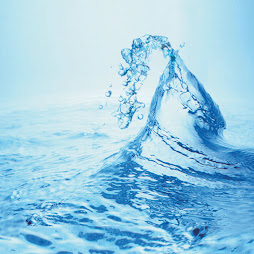The number one killer in America is heart disease. And, two huge health risks that can lead to serious heart conditions are high blood pressure and high cholesterol. But, these can be prevented.
Let's start with high cholesterol. The American Heart Association says that one in five American's have too high a cholesterol level. But first, just what is cholesterol? Cholesterol is a waxy, fat-like substance called a lipid that is found inside cells and blood. It is produced naturally in the liver, but some of the "bad" cholesterol comes from the food we eat, mainly in animal fats. While too much cholesterol can be harmful, a certain amount is necessary for bodily functions, such as making cell walls and acting as a building block to produce various hormones, bile acids, and Vitamin D.
Having too much cholesterol can block blood flow, resulting in a thickening and hardening of artery walls, a disorder called arteriosclerosis. Since this also narrows the arteries, blood flow can be slowed down, or even blocked. With less blood, the heart therefore gets less oxygen. That can result in chest pain, heart attack, or something as drastic as death. Lowering your blood cholesterol level is one of the best ways you can decrease your risk of heart disease. And, even if your cholesterol is close to the desirable range, 200 milligrams per deciliter of blood, you can lower it and reduce your risk of heart disease.
With all this thickening going on, water can play a very important role. Drinking water can actually thin the blood, making in a natural way to help the blood pump more smoothly. Drinking plenty of water will keep your blood ways clean! Since exercise, along with a healthy diet, is an important contribution to the lowering of cholesterol, once again, water needs to be drank in order to replenish what was lost. In fact, consumption of water so you are fully hydrated can increase your metabolic rate!
Let's move on to high blood pressure, also known as hypertension. Blood pressure refers to the force of blood pushing against artery walls as it makes it way through the body. Just like air in a tire, blood fills arteries to a certain capacity, and anything over that capacity can have damaging effects. (Ever have too much pressure in your tires?) Just like high cholesterol, high blood pressure can threaten healthy arteries and lead to life-threatening conditions such as heart disease and stroke. And what's scary is that there are not any real symptoms until, which is why high blood pressure is known as the silent killer.
Hypertension can be combated in many ways, such as quitting smoking, drinking alcohol or overweight. Water can also help lower this pressure, as blood is mainly comprised of water. If water levels drop, that can affect your blood pressure. So, drinking the healthy amount of water each say can maintain a healthy heart. Also, the kidneys clean the blood. If blood flow is limited to the kidneys because of lack of water or high blood pressure, it will think the body is low on water, and react by telling the brain to constrict veins and arteries, which will make pressure even higher.
Heart disease is a serious issue in America today, with two of the top causes being high cholesterol and high blood pressure. Drinking enough water can combat both of these.
When it comes to your health, the quality of your drinking water is just as important as the quantity.
According to recent news and reports, most tap and well water in the U.S. are not safe for drinking due to heavy industrial and environmental pollution. Toxic bacteria, chemicals and heavy metals routinely penetrate and pollute our natural water sources making people sick while exposing them to long term health consequences such as liver damage, cancer and other serious conditions. We have reached the point where all sources of our drinking water, including municipal water systems, wells, lakes, rivers, and even glaciers, contain some level of contamination. Even some brands of bottled water have been found to contain high levels of contaminants in addition to plastics chemical leaching from the bottle.
A good water ionizer installed in your home is the only way to ensure the quality and safety of your drinking water. It electrically charges the tap water to make it a powerful antioxidant. This water is up to 6 times more hydrating the bottled or tap water, which means there is rapid nutrient absorption by our cells. Above all, the water has an alkaline pH, this washes away excess acidity in the body and the risk factors associated with it.
For more information, visit www.Chansonwater.com



